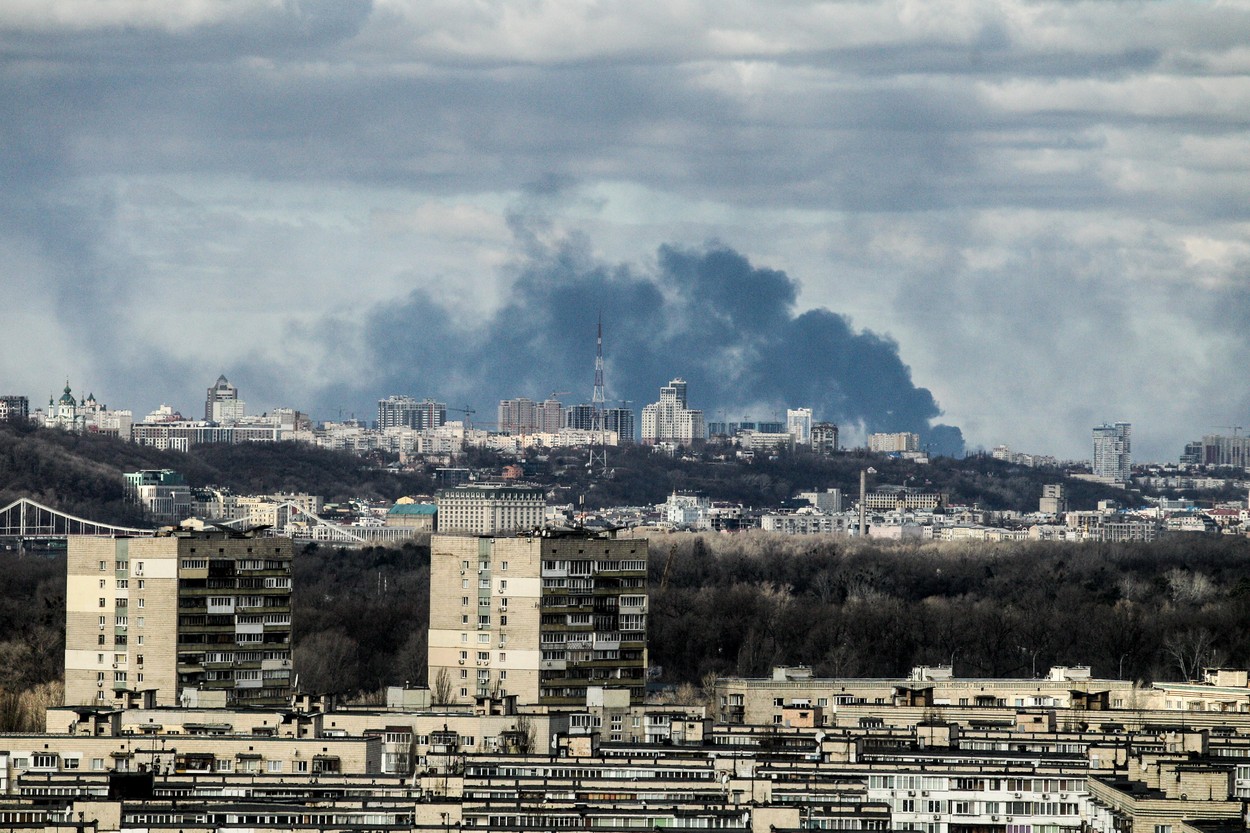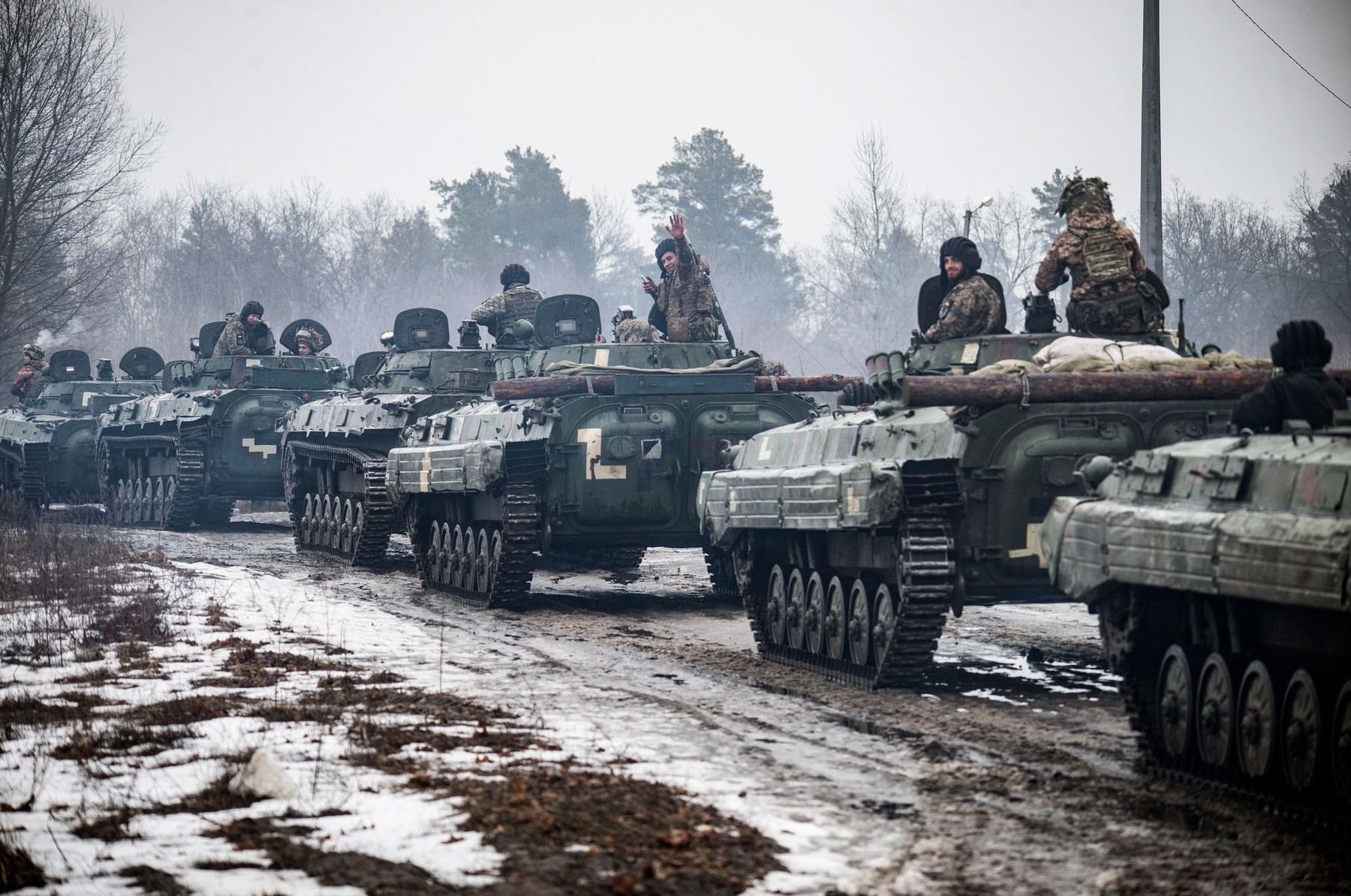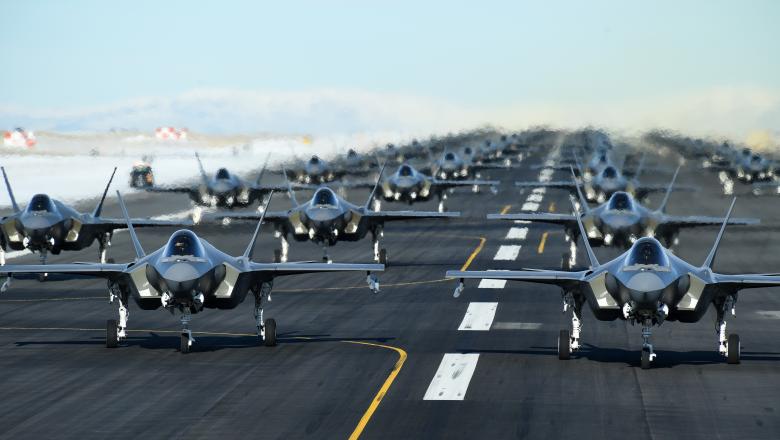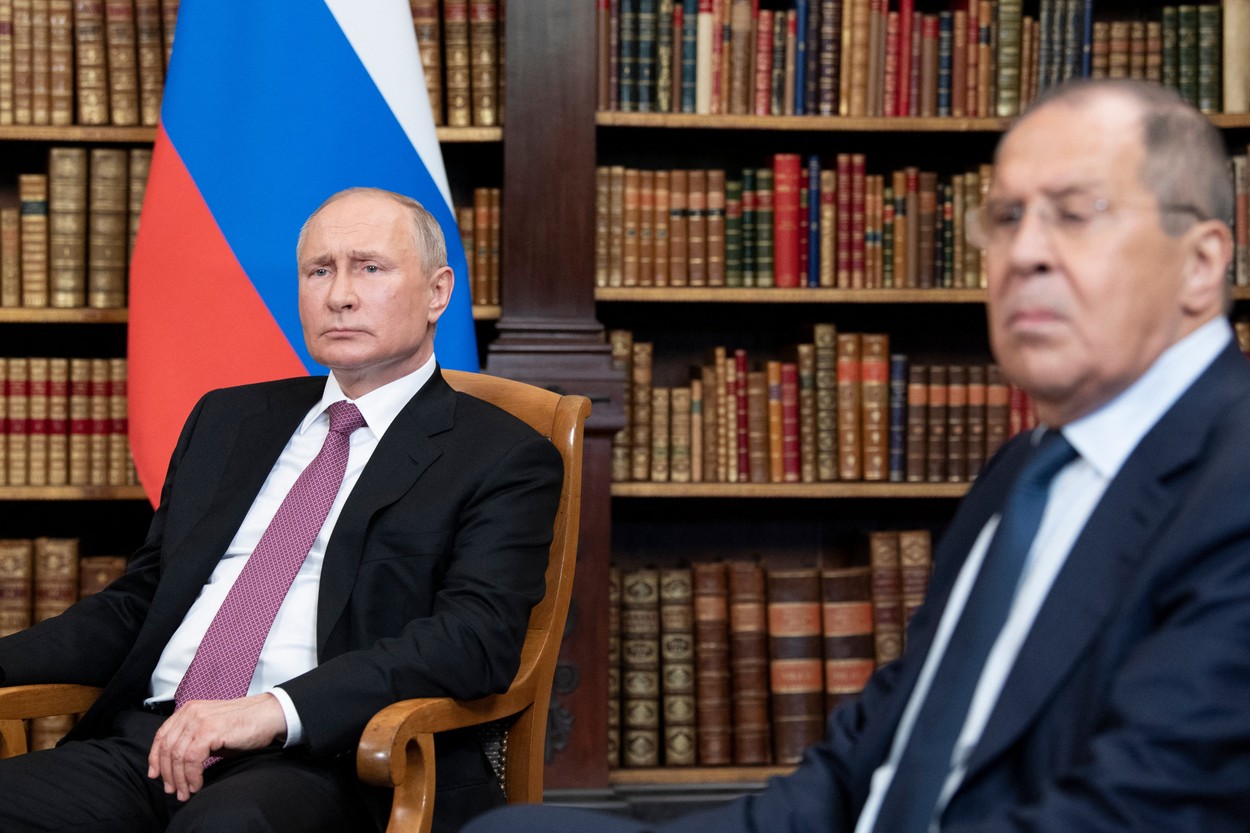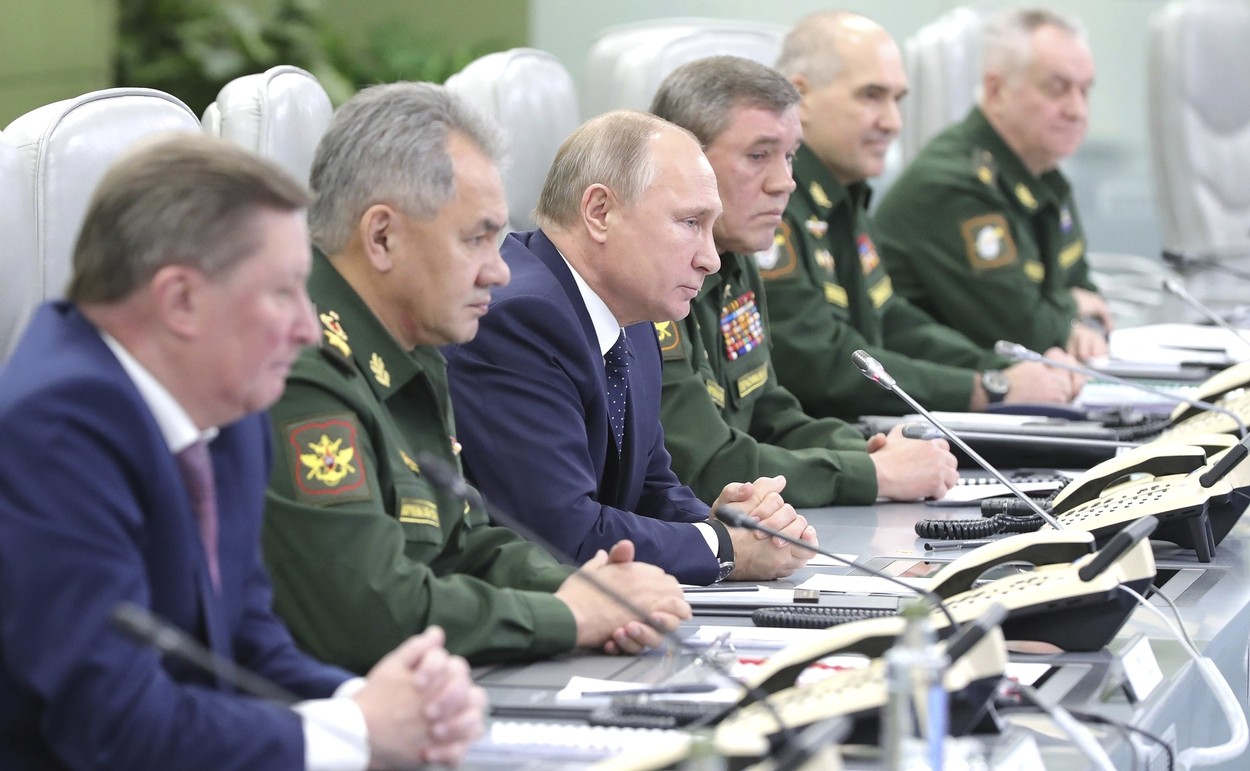According to a published analysis, the war in Ukraine will end in five possible scenarios BBC And quoted Agerpres.
Traces of a fight in Kiev – the city is preparing for new attacksPhoto: Genya Savilov / AFP / Profimedia Images
“In the tension of a war, it is difficult to find a way to end the conflict. At that point, the news on the battlefield, the diplomatic reactions, the grievances of the victims and the emotions created by the fate of the refugees may all be so great. What are the possible scenarios that strategists are exploring? Only a few can accurately predict the future, but here are some possible conclusions. BBC Quoted at the beginning of the article Agerpres.
Scene 1: The short war, the surrender of Kiev and Putin’s puppet government
In this situation, Russia has stepped up its military operations. There will be more artillery and missile attacks that will blindly attack the whole of Ukraine. The Russian Air Force – which has so far played a small role – will carry out devastating attacks. Mass cyber-attacks target key elements of the national infrastructure and target the whole of Ukraine. Electricity and communication networks will be disconnected.
Tens of thousands of civilians will die. Despite its bold opposition, Kiev will fall in a few days. The current government will be replaced by a pro-Russian puppet regime. President Zhelensky will be assassinated or will leave Kyiv in western Ukraine or abroad and form a deported government.
President Putin declared victory and withdrew some Russian armed forces, leaving enough troops to maintain control. Thousands of refugees continue to flee to the West. Ukraine joins Belarus in Moscow-controlled states.
This decision is not impossible, but it depends on many factors: the Russian army is performing better, more troops are being brought in, and the sense of extraordinary Ukrainian fighting is declining. Vladimir Putin can achieve a change in the Kiev regime and put an end to Ukraine’s integration with Western structures.
But any pro-Russian government in Kiev would be illegal and vulnerable to protests. Such an outcome remains precarious and the conflict is more likely to re-emerge.
Scene 2: The Long War, the Problems of the Russian Army and the Grozny Scene
Perhaps this conflict is more likely to turn into a protracted war. The Russian armed forces are plagued by low morale, poor logistics and incompetent leadership. Russian forces may need more time to gain control of cities such as Kiev, with its defenders taking part in street battles. A long siege may continue. The scene is reminiscent of Russia’s long and brutal war in the 1990s to seize and destroy much of the Chechen capital, Grozny.
But even after a certain presence of Russian forces in Ukrainian cities, they are likely to have difficulty maintaining control. Russia may not be able to send enough troops to cover such vast territory, and the Ukrainian defense forces will lead a revolt that is effective, well-motivated and well-supported by local people. The West will continue to send weapons and ammunition.
Then, probably many years later, perhaps with a new leadership in Moscow, Russian forces will eventually leave Ukraine and be defeated and bloodied, after their predecessors left Afghanistan in 1989 and fought the Islamic insurgency a decade later.
Scene 3: European war, Baltic invasion, NATO’s Division 5 and nuclear threat
Can this war cross the border into Ukraine? President Putin may try to recapture parts of the former Tsarist empire by sending troops to former Soviet republics such as Moldova and Georgia, which are not part of NATO.
Or a strategic calculation error and an increase in conflict may occur. Putin could say that taking arms from the West to the Ukrainian army is an act of aggression that requires retaliation. He may threaten to send troops to NATO-affiliated Baltic states, including Lithuania, to build a ground route to the Russian border at Kaliningrad.
This is very dangerous and could lead to a war with NATO. Under Section 5 of the North Atlantic Coalition Act, an attack on one member state is considered an attack on all member states. But Putin may take that risk if he thinks such a move is the only way to save his leadership.
On the other hand, if he risks failing in Ukraine, Putin could be provoked to escalate the military conflict. The West now knows that the Kremlin leader is ready to break international rules. The same logic can be applied to the use of nuclear weapons.
This week, Vladimir Putin placed more vigilance on Russian nuclear forces. However, most analysts doubt that the use of Russian nuclear weapons means possible or immediate. However, Putin’s order reminds us that Russian theory allows the use of nuclear weapons on the battlefield.
Scenario 4: Diplomatic solution, China’s pressure and Putin’s exit solution
Can these issues still be resolved diplomatically?
“Weapons speak now, but the path of dialogue must always be open,” said UN Secretary-General Antonio Guterres. Some conversations continue. French President Emmanuel Macron spoke with President Putin on the phone. Diplomats say some communications channels have been opened with Moscow. Also, surprisingly, Russian and Ukrainian officials met for talks on the Belarusian border. Negotiations did not lead to significant progress. However he acknowledged that their numbers were not enough to defeat Putin’s government.
The key question is whether the so-called “off the ramp” of diplomats can be provided by the West, which is the American word for a major highway exit. Diplomats say the Russian leader knows the conditions for lifting Western sanctions, so an agreement to protect his reputation is possible at this time.
Consider this scenario: the war in Russia is getting worse. Sanctions are beginning to worry Moscow. Opposition is growing as more Russian troops are being brought home. Putin begins to wonder if he stretched more than his duet. He believes that the continuation of the war will pose a greater threat to his leadership than the humiliation he will endure.
China intervenes, pressures Moscow to reach a compromise and threatens to stop buying Russian oil and gas if a ceasefire is not reached. Then Putin finds a way out of the war. Meanwhile, Ukrainian officials point to the continuing destruction of their country and conclude that political compromise is far more effective than catastrophic casualties.
Diplomats negotiated and reached an agreement. Ukraine will recognize Russia’s sovereignty over the Crimean Peninsula and the Donbass region. Instead, Putin acknowledges Ukraine’s independence and the right to deepen ties with Europe. However, this solution seems unlikely. However, the emergence of such a situation in the context of the bloody conflict is not beyond the question of credibility.
Scene 5: Slightly removed from power
What will happen to Vladimir Putin? Beginning with the invasion, the Kremlin leader said: “We are ready for any end.”
What if he loses his power as a result? This seems unthinkable. However, the world has changed in recent times and people are now thinking about things like this. Lawrence Friedman, a professor of war studies at King’s College London, issued the following statement this week: “The regime in Moscow is as likely to change as in Kiev.”
Why should a British professor publish such a statement? Perhaps Putin can continue the path of destructive war. Thousands of Russian soldiers will die. Sanctions will be felt. Putin will lose popular support. Perhaps the threat of a people’s revolution may arise. Putin will use internal security forces to suppress the opposition.
But as the internal situation worsens, a sufficient number of members of Russia’s military, police and economic elite will turn against him. The West has made it clear that if Putin is removed from power and replaced by a more moderate leader, Russia will benefit by removing some of the obstacles and restoring normal diplomatic relations.
A bloody coup will take place and Putin will be ousted. Again, this situation is not possible at this time. But it would not be entirely unrealistic if people who benefited from their relationship with Putin did not believe that the Kremlin leader could continue to defend their interests.
Results for five war scenes in Ukraine
These scenarios are not exclusive to each other – some of their elements can combine to produce different results. But no matter how the conflict in Ukraine ends, the whole world will change.
Mankind will not return to the past. Russia’s relationship with the outside world will be different. Europeans’ attitude towards security will change.
One can discover how liberal order based on international norms should have been from the beginning.
—

“Evil gamer. Amateur music trailblazer. Alcohol geek. Problem solver. Coffee advocate. Troublemaker. Infuriatingly humble zombieaholic.”

